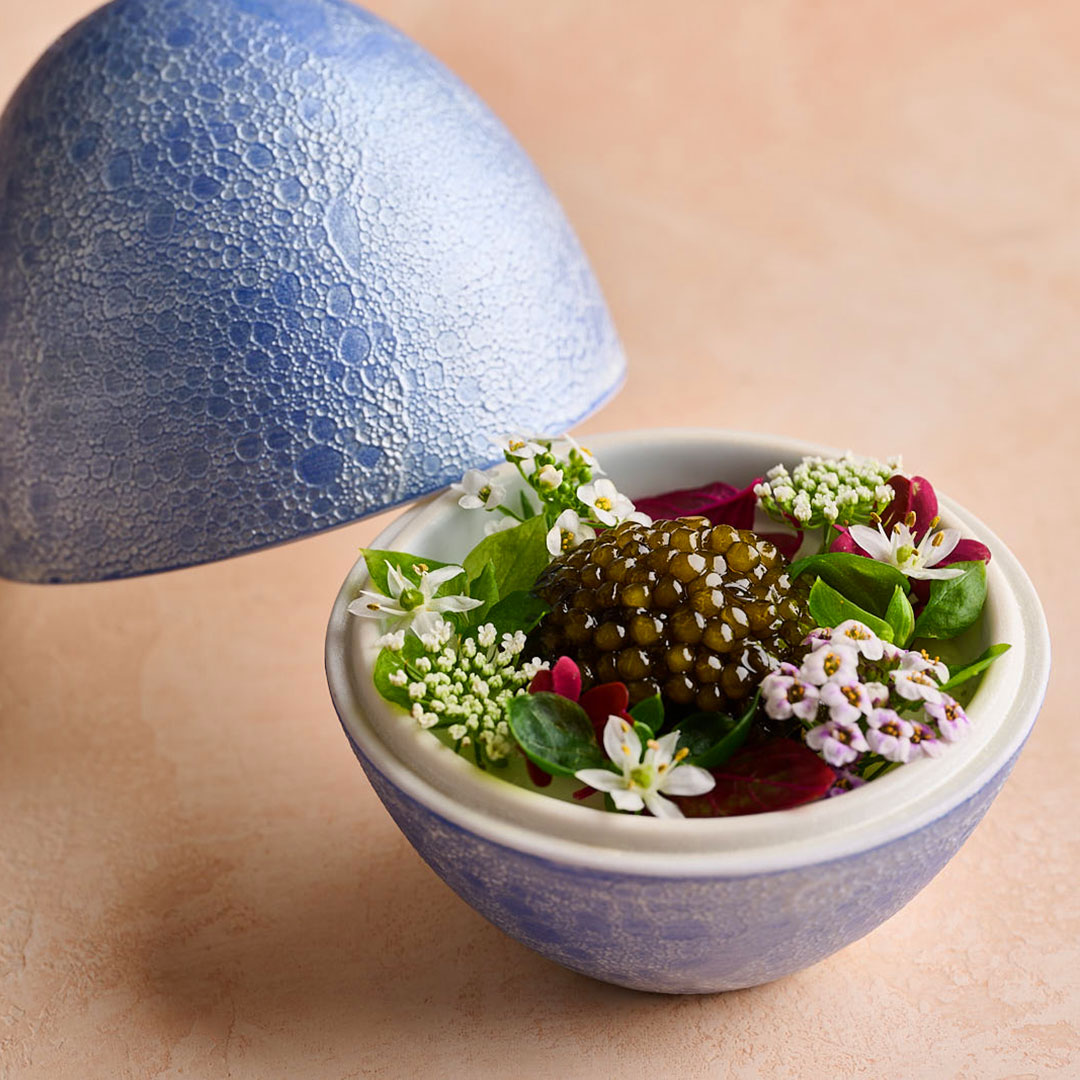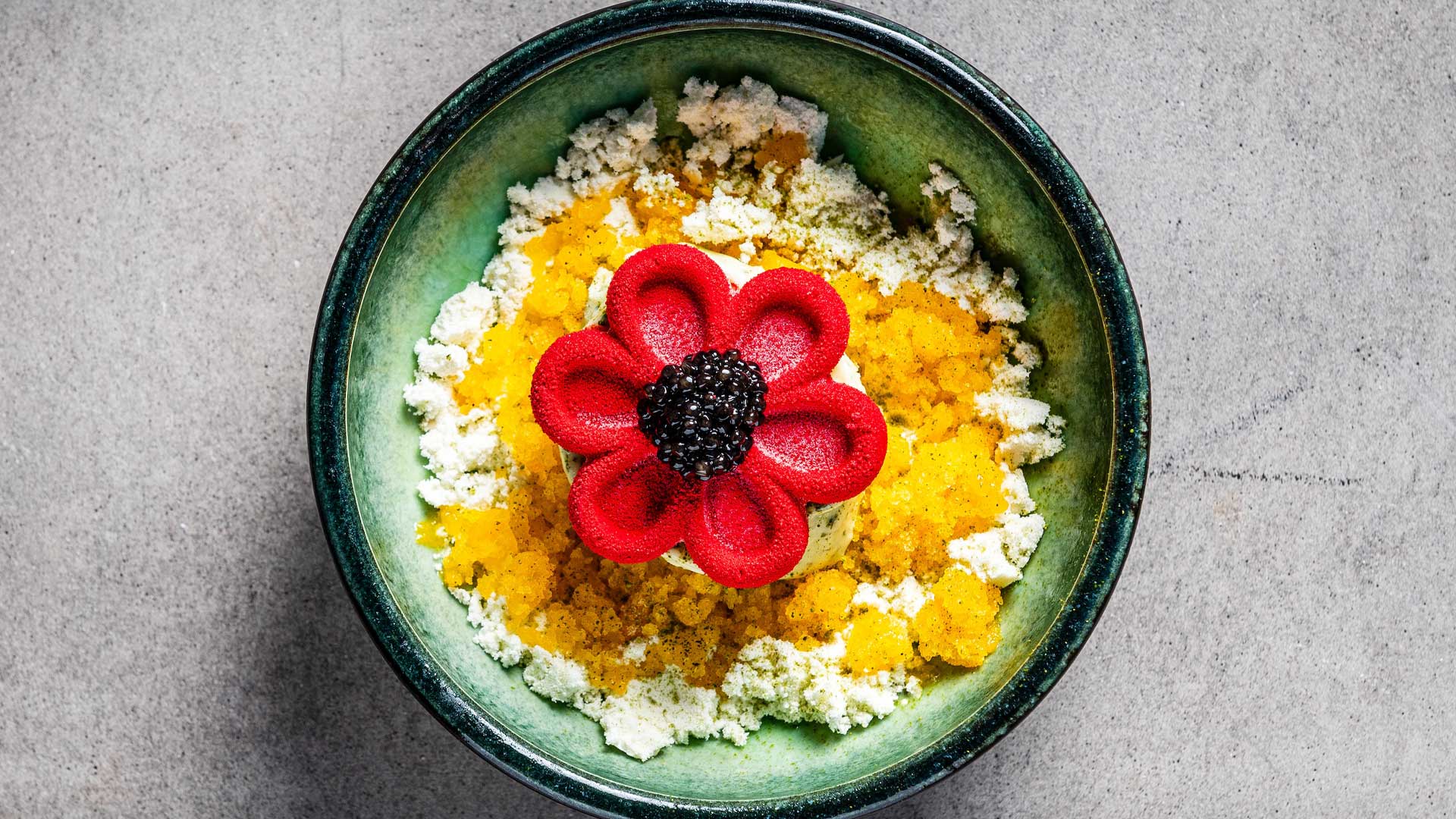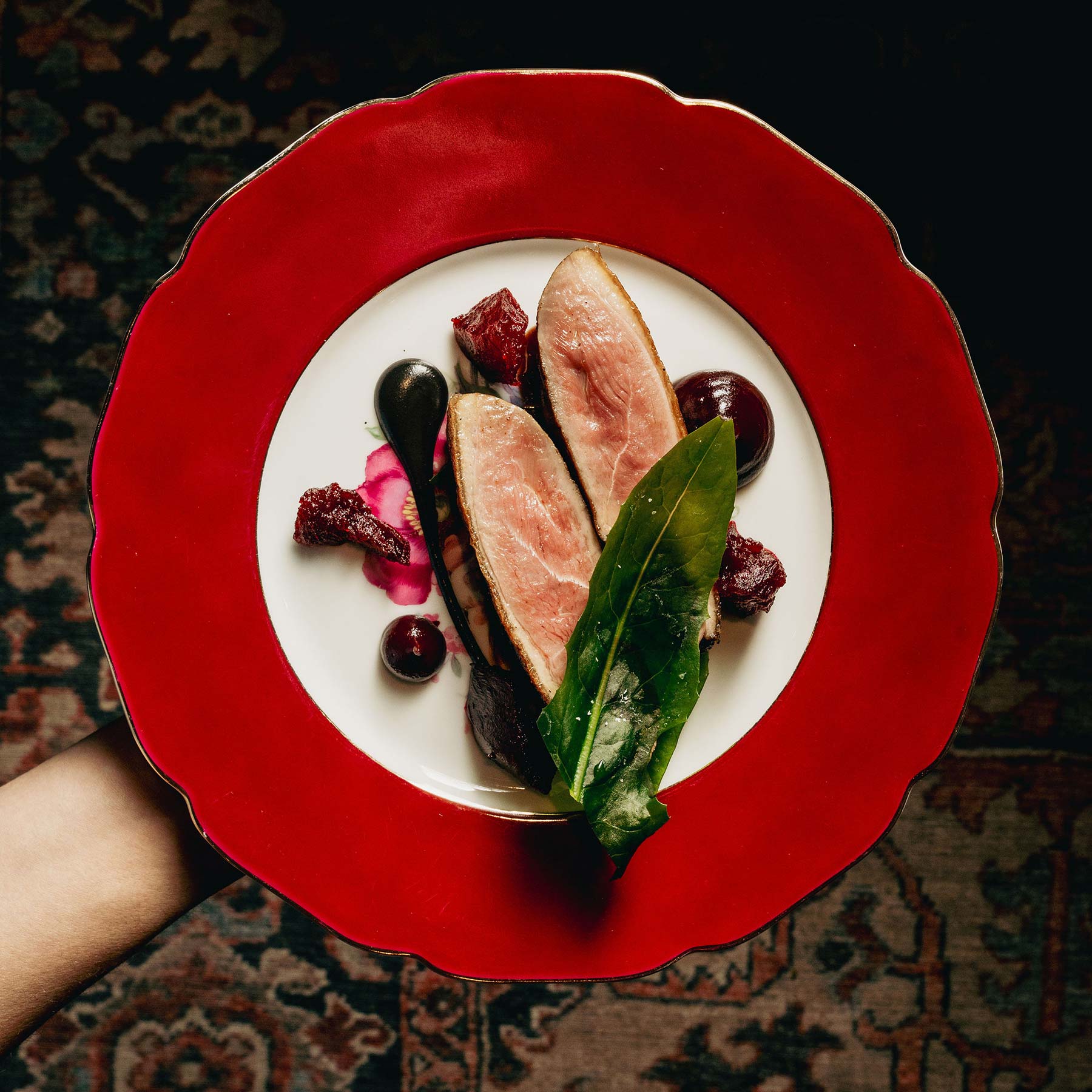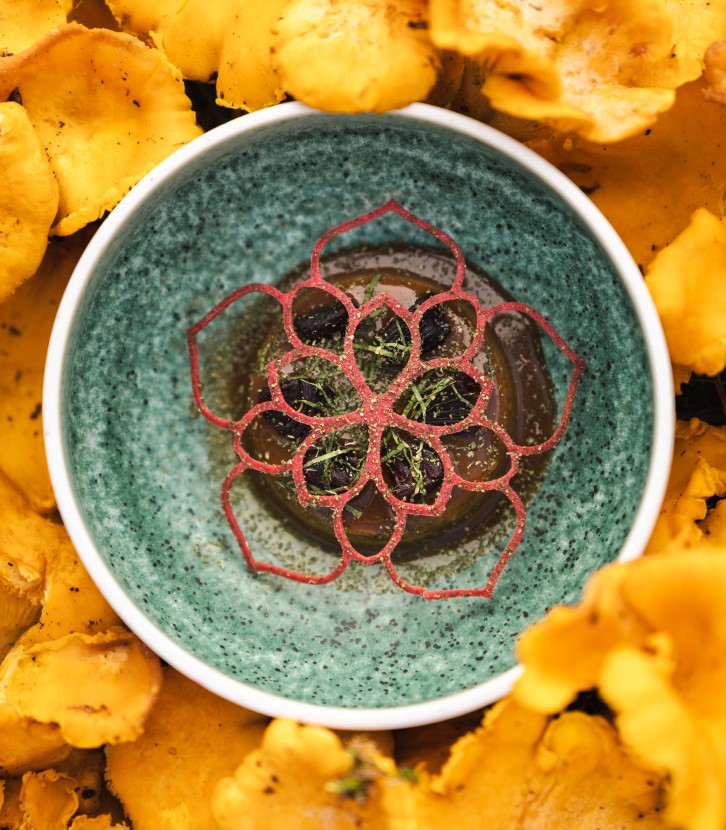Since 2021, Auberge de l'Abbaye de Montheron, situated a little north of Lausanne, has held a MICHELIN Green Star—our award recognizing restaurants that prioritize sustainability in their operations. For the location of their eco-friendly restaurant, Chef Rafael Rodriguez and his team chose this abbey steeped in history. The Cistercian monastery, located right on the edge of the forest, has endured the changing seasons and borne witness to historical events since the 12th century—while always surrounded by nature, which has now become the most important source of inspiration and ingredients for the Auberge's cuisine.
Sitting on the terrace within the monastery's old cloister, savoring dishes brimming with innovative ideas, one feels intimately connected to the Jorat forest, a landscape rich with legends of fairies and goblins. The largest forest on Switzerland's Central Plateau, it is a cornucopia of treasures, which Rodriguez and his team tap into for their culinary creations. "Our philosophy is based on respect for nature's gifts," he explains. "We value local ingredients and aim to highlight their distinctive qualities." This includes foraging for mushrooms, fruit and herbs in the forest beyond the abbey's gates, but other suppliers from the region are also an important element of the philosophy.

Rafael Rodriguez was born in Spain. His time at El Celler de Can Roca in Girona, a groundbreaking modern restaurant holding Three MICHELIN Stars and a Green Star, left a lasting impression on him. This more recent venture at Montheron Abbey began as a project among friends. "Over time, we have developed a sustainable culinary concept that is based solely on ingredients from the surrounding area."
The chef explains that the rich terroir of Vaud and elsewhere in Romandy is the defining characteristic of his cooking. He sources vegetables from the permaculture garden at Auberge du Chalet-des-Enfants and works closely with neighboring farmers, who supply the majority of the high-quality fresh produce he uses in his creative cuisine: vegetables from the Hess family farm in Mont-sur-Lausanne; organic meat from the Benoît family farm in Thierrens; artisanal meat products from Boucherie de Sévery; fish caught in Lake Geneva by fisherman Serge Guidoux; and dairy products such as butter, cream, milk, and yoghurt from Fromagerie du Haut-Jorat and Saugealles farm. Resulting dishes include mushrooms with kale and parsley, char with watercress and spinach, or venison with walnut wine and red cabbage.

In the kitchen, the Auberge remains faithful to its nature-based concept. Ingredients are transformed through cooking, fermentation, smoking, and drying, yielding surprising flavor profiles and ever-changing, rigorously seasonal dishes and set menus. The team proves that modern techniques, contemporary progressive aesthetics and respect for tradition can coexist beautifully, as showcased in their culinary creations and beverage selection.
It goes without saying that the philosophy extends to the drinks, and the kitchen collaborates closely with the service team led by David Donneaud. The restaurant’s attachment to the earth and the concept of sustainable integration within the location and its surroundings is also reflected in the wine cellar. You are invited to embark on a sensory voyage through time to Montheron Abbey's past—without losing sight of the present and the flourishing Alpine wine production scene. The wine list features a selection of new discoveries and producers within a 250km radius of the restaurant, including aged Chasselas from Clos des Abbayes in Dézaley—a vineyard owned by the monks until 1536—alongside natural wines, outstanding vintages from Vaud, craft beer, house-made génépi herbal liqueur, and medieval drinks such as hippocras, a spiced wine.
"In our historical inn, we approach things with a modern mindset, but we also value tradition," Rodriguez is keen to emphasize. He is as passionate about being in touch with nature as he is about the future of the culinary arts. "I would like to see a future in which catering becomes more sustainable and mindful. My wish is for cleaner, more respectful cuisine in which collaboration with local producers is valued, and authenticity is prioritized over short-lived trends."
The set menu is rounded off with a dessert that reaffirms the chef's bond with the natural environment. Inspired by woodland aromatics, Rafael creates an "Alpine Mojito", utilizing components such as tree bark and pine needles to encapsulate the spirit of the forest and offer diners an authentic experience: "The tranquility and beauty of the forest inspire my cooking. I use locally foraged ingredients to capture the essence of our surroundings."
























